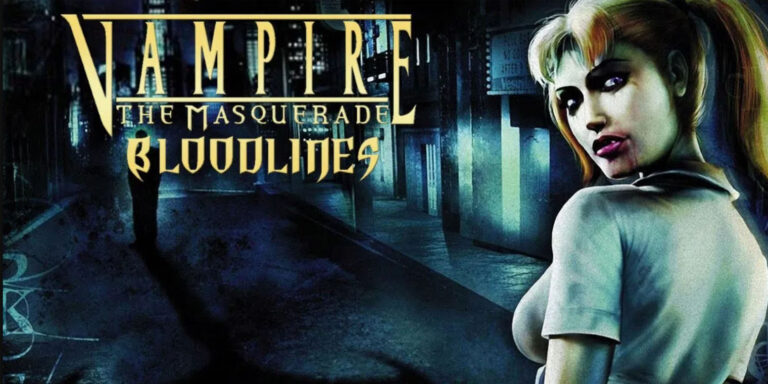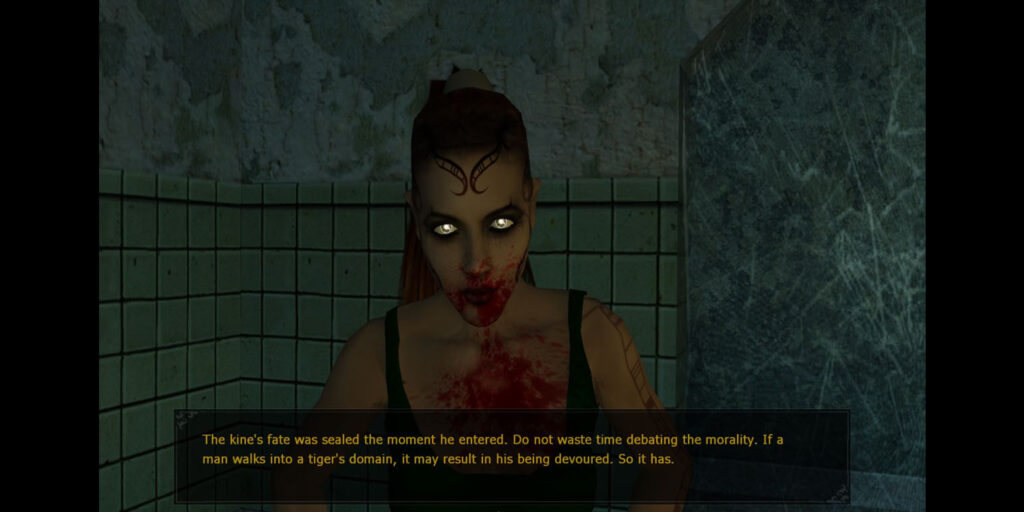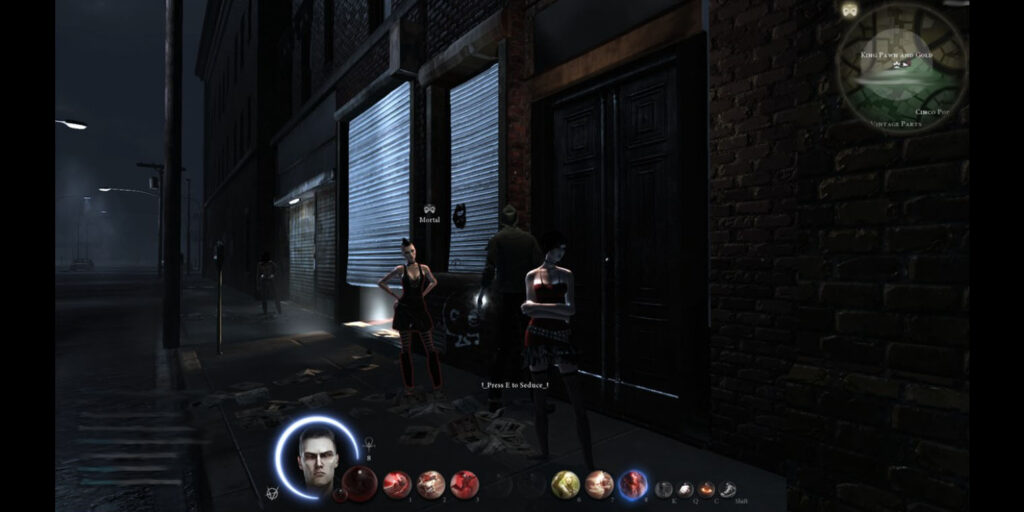Vampire: The Masquerade Studio Resurrects, And Rebrands As, White Wolf


World of Darkness, the company behind video and board games, and TTRPGs (Tabletop Role Playing Games) involving vampires, lycanthropes, and other creatures of the night, has itself shapeshifted into a new form. Now known as White Wolf, a former TTRPG company, World of Darkness will be working with parent game company Paradox Interactive to co-develop and publish various horror-related transmedia titles.
First up is the video game Vampire: The Masquerade – Bloodlines 2, which was originally slated for a Fall 2024 release but is now set for launch sometime later in 2025. In this sequel, players can take on the role of a vampire and find themselves embroiled in an underworld war in Seattle.
As the first official release under the resurrected White Wolf name, Executive Vice President, Marco Behrmann, is expecting brand recognition to work in the game’s favor: “The White Wolf name echoes in eternity, with strong brand recognition across entertainment sectors, including game makers, licensing partners, retailers, and distributors,” he said in an official press release on the Paradox Interactive website.
“This rebirth is a huge win for our fans because it empowers us to create the products, experiences, and worlds they want to explore.”
A Brief History of White Wolf
White Wolf first launched in 1986, in Georgia. Founded by brothers Steve and Stuart Wick, the company started out publishing RPG magazines before a merger with game publisher Lion Rampant in late 1990 led to White Wolf branching out into its own TTRPG material.
The tabletop version of Vampire: The Masquerade saw the light of day in early 1991, and was welcomed by RPG fans with open arms as it offered a distinct alternative to Dungeons And Dragons, by replacing fighting monsters with playing one, and dungeon-crawling with political backstabbing.

White Wolf went from strength-to-strength as it built out its World of Darkness RPGs, which included Werewolf: The Apocalypse and Mage: The Ascension. However, the start of the 2000s saw a dip in profit which caused the company to stop publishing multiple titles, and instead focus on a few core lines.
Vampire: The Masquerade – Bloodlines
One of these was a video game version of Vampire: The Masquerade – Bloodlines. Developed by Troika and released in 2004, the game was famously ambitious in scope but also filled with jank. Players could create a vampire linked with one of seven clans, which not only affected stats but also how NPCs respond to the player.

True to its TTRPG roots, the video game version offered a dense and sprawling narrative as the players found themselves embroiled in a tale of political intrigue and murders, with different endings available. However, the game was released in an almost unplayable state which meant players were lucky if they could finish the game at all.
Despite this, and after only selling around 72,000 copies, Vampire: The Masquerade – Bloodlines attained a kind of cult popularity, spread via word of mouth and constant reappraisals by players and press. A fan-made Unofficial Patch was released in 2016 that finally made the game a lot more stable.
Unfortunately, it was too late for Troika, as the studio failed to make enough money from the sales of Vampire: The Masquerade – Bloodlines and closed down in 2005. Conversely, it did White Wolf a huge favor by introducing new players to the World of Darkness, and the publisher continued to do well, for a while.
The End of White Wolf
White Wolf was bought by CCP, the game studio best known for EVE Online, in 2006. CCP then started on an MMORPG set in the World of Darkness. However, through various reasons including budget problems, this was axed in 2014. White Wolf barely existed by this point, with very few employees under CCP still working under this name.

Paradox Interactive entered the scene in 2015 to buy White Wolf and licences to the World of Darkness. In August 2018, the company published the much-anticipated 5th Edition of Vampire: the Masquerade. But, fans’ excitement soon turned to anger when it was revealed that this book, and subsequent follow-up books, contained decidedly questionable material.
This included reference to neo-Nazis, explicit child endangerment, and even references to a real-world Chechnyan Head of State (Ramzan Kadyrov) that presented the (also very real) anti-gay purges in that country as something designed to take the focus off vampires.
Paradox killed off White Wolf there and then, by firing the relevant staff and pulling affected books from sale for a serious re-edit. World of Darkness material was handed over to Jason Carl, the new Brand Manager, also in 2018. Carl is still with the company and recently posted on his LinkedIn about the reemergence of White Wolf.
“Returning the White Wolf brand is also a significant personal milestone for me. I have been involved for many years with White Wolf’s long history of games as a fan, creator, licensee, and its Brand Marketing Manager, and so I feel very proud to help revitalize it today.”
What’s Next For White Wolf
The main takeaway from the return of White Wolf is that all World of Darkness properties, whether a tabletop RPG, video game, or something else, will be produced in-house with the backing of Paradox Interactive.

“The Wolf is back, baby! I’m incredibly excited and proud to bring back White Wolf as an independent business entity, taking the legendary World of Darkness IP portfolio into the future,” Executive Vice President Marco Behrmann said in the press release.
“Establishing a dedicated publishing wing for our internally developed tabletop role-playing games strengthens our already successful licensing business. This lets us develop both classic and new IPs faster and with a clearer long-term transmedia vision, always in collaboration with our passionate fans and partners.”
Paradox Interactive was founded in Sweden in 2004 and is best-known for its strategy and simulation video games such as Cities: Skylines, Crusader Kings, and Stellaris. Its most recent release is Foundry, a robot factory building simulation available now in Early Access.


















